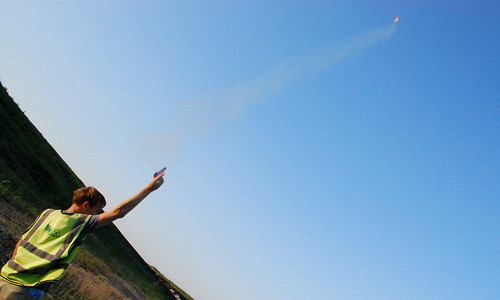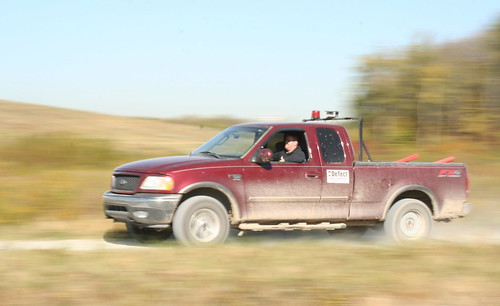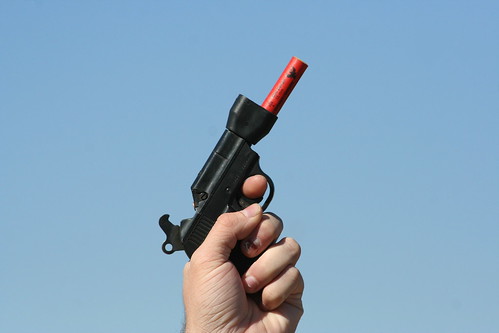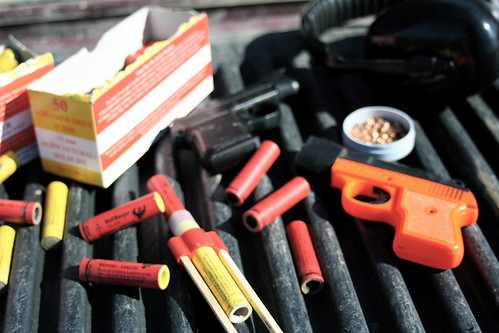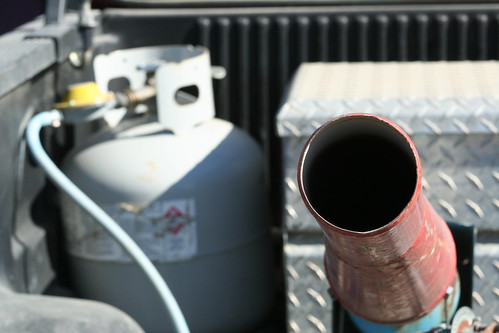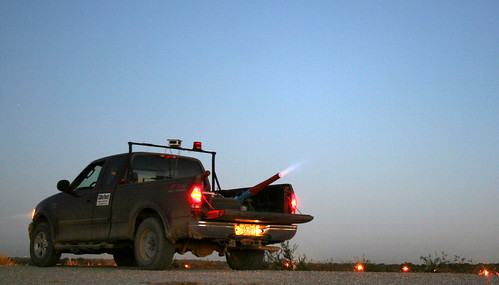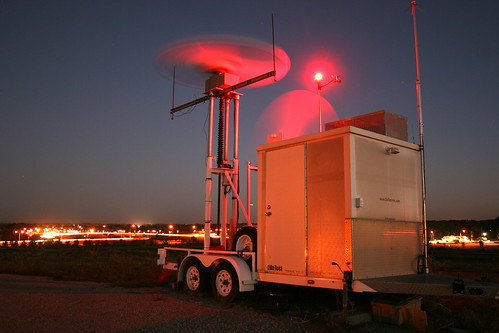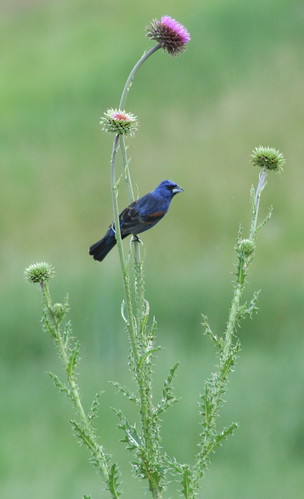Hello all. My name is Ryan and I am a landfill bird biologist. Wait...what? True, when I was getting my B.S. in Wildlife Management the last place I was thinking about getting a "bird job" was at my hometown landfill. I started off part time working on Saturdays until, no joke, one of the full time Biologists accidentally shot a contractor in the face. The guy wasn't hurt, but it was enough for me to get a call up to the big leagues.
Firing a screamer-banger rocket at a group of Turkey Vultures
People are very curious as to what a Landfill Bird Biologist does. Let's just say the word "Biologist" is a loose term and to answer the question of what I do all day, my wife prefers Professional Scarecrow. In Man's infinite wisdom, we decided to mix two things that don't mix, landfills and airports. Hence, to mitigate the problems these two things impose together, the Landfill Bird Biologist was born! I use several techniques to disperse birds that are attracted to the landfill, with the trusty pyro pistol as tool number one.
Tools of the trade, including: pyro pistols, banger, screamer, and
the dreaded screamer-banger rocket
Along with the bangers and screamers, I use the distress caller on top of the truck that broadcasts distress calls of the different blackbird species. Another favorite standby is the propane cannon, which is as cool as it sounds. Basically it is a long barrel attached to a propane tank. When enough pressure builds up the gas escapes and emits a loud boom. The newest toy in the LRAD, or long range acoustical device. It is a fancy name for a giant mp3 player that "shoots" sound. This is a small hand-held version, but the big one is used on cargo ships to dissuade would be pirates. The sound is so loud it hurts and they turn around.
Perhaps the most expensive tool is the bird radar. The radar is made by my employer DeTect-Inc and it uses software to filter out noise and focus solely on the birds. This allows the radar to track bird movements and provides continuous real-time updates and risk alerts. The vertical band tracks bird movements by altitude and the horizontal band shows bird movements in real time over a satellite image of the site. The radar is in use all over the world; from tar sand mines in northern Alberta, to South Africa where it was installed at the King Shaka Airport that was built for the 2010 World Cup, to the Air Force and NASA which uses it to track Turkey Vultures during shuttle launch after a collision that occurred between the two in July 2005.
Certain times of the year are busier than others. Usually migration in April and September are slow times for bird activity, at least the birds we are concerned about flying into airplanes. The starlings are busy breeding and there aren't many thermals for the Turkey Vultures to ride. Luckily, these are the months when songbird activity is highest, and songbirds are my main photography interest. Most of the time I can pish birds close enough to photograph with my digital Rebel equipped with a 300mm lens. Other times it is not as easy, and on the rare occasion, I get downright lucky and am able to capture some fascinating bird portraits.
Blue Grosbeak on thistle plant
So there you go. A look into the day of a Landfill Bird Biologist. Be sure to stick around and follow us because you never know what is going to show up next!
 6:22 PM
6:22 PM
 Ryan Ankeny
Ryan Ankeny
